SUMMARY
This is AI generated summarization, which may have errors. For context, always refer to the full article.
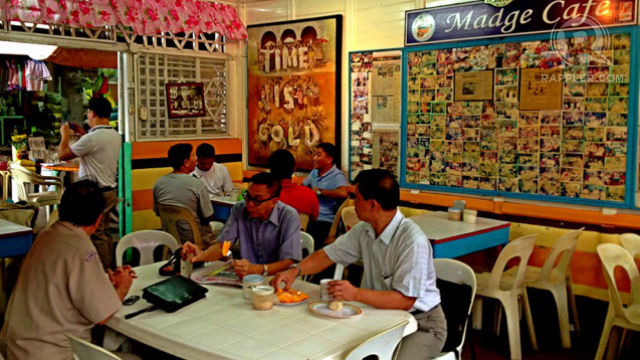
ILOILO CITY, Philippines – In the not so distant past, it took time for the latest trends and technology to hit Manila, more so for the rest of the country. The common joke was that the Philippines was at least 10 years behind the US in everything from movies to fashion.
Today, the latest hit TV show in the US is downloaded in India the moment after it airs while dance crazes spread faster than viruses. The digital age has dramatically reduced the lag time for sharing ideas from one corner of the globe to another.
But while ease of access has its benefits, the readiness by which we accept and adapt predominant popular culture tends to mute our own homegrown sensibilities. In this modern age, consumption is all about sleek design and fancy brands. Everything else seems passé.
And then, there are places like Madge Café.
Tucked away in a quiet spot in La Paz public market in Iloilo City, Madge Café is an oasis for city dwellers thirsty for a hot cup of coffee and a good conversation. We at Rappler first read about it online in a local campus paper, Central Echo. While in town for MoveIloilo, we knew we had to check out this Iloilo institution.
Since it opened its doors in 1951, little has changed in this family-owned coffee shop. The pink curtains and picture frames hung on the walls are a throwback to simpler times. There is no air conditioning, no jazzy music, and no cash register.
The coffee beans, sourced locally, are roasted in house. The brew is prepared using a flannel sieve, called a culador, which holds the ground coffee and allows the flavor to build with every added layer of beans.
The manang quietly makes each cup according to the customer’s demand. There seems to be a precise process for the different orders of strong, regular or white coffee; but only she knows the secret.
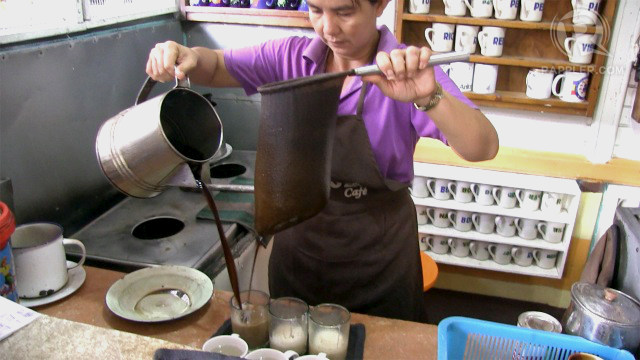
Peter de la Cruz is the third generation manager. His grandfather, Vicente, had a passion for coffee. He named the café after his wife, Magdalena. The couple ran the business until 1977, turning it over to their son Gerardo, Peter’s father.
“People here come from all walks of life. They come here to tell stories and listen to others,” said Peter. Unlike other coffee shops where tables are small and far between, Madge’s plastic tables are long and wide – perfect for sharing. It is for this reason, Peter believes, that Madge has withstood the test of time.
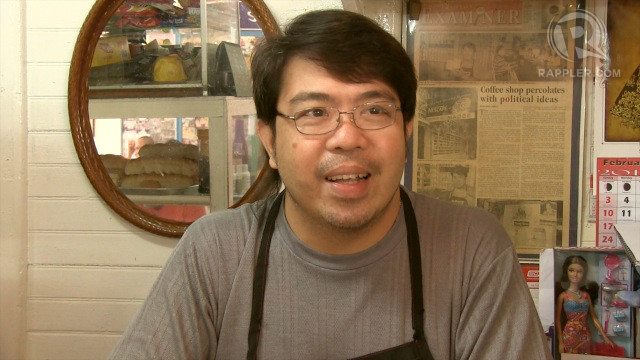
Outside the café, the market is busy. Campaign posters of familiar names in Iloilo politics prematurely punctuate the stalls of fruits and dried fish. The city, after all, is gearing up for another election. This one promises to be different as former enemies are now allies, albeit for the time being.
If ever one of these local or national politicians were to step into Madge, however, they would be treated no differently from the other patrons. “We don’t give them that special treatment which they can get anywhere else,” said Peter.
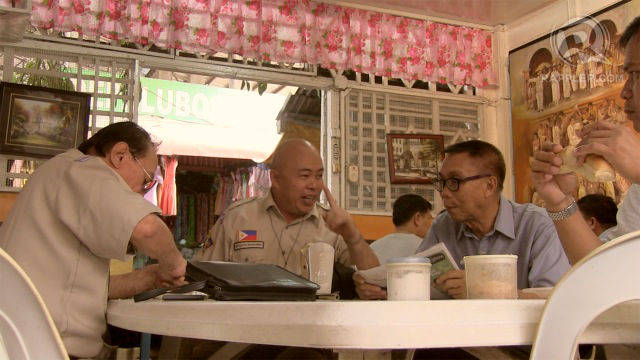
“If you want people here to listen to your story, you buy them a cup of coffee.” This is the unspoken rule according to Rex Trivilegio, a journalist and Boy Scout official who is a regular at the café. Rex said café regulars talk about anything under the sun and it doesn’t matter whether you are rich or poor, a sugar baron, or a fish vendor.
“Some like to debate with each other, but in the end, they meet halfway and still part as friends,” said Peter who sits behind a bar in one corner of the café.
In fact, the regulars have their names stenciled on their cups. The servers also greet them with a familiar smile and know exactly how they like their coffee. And if they can’t afford to pay, the coffee is given for free.
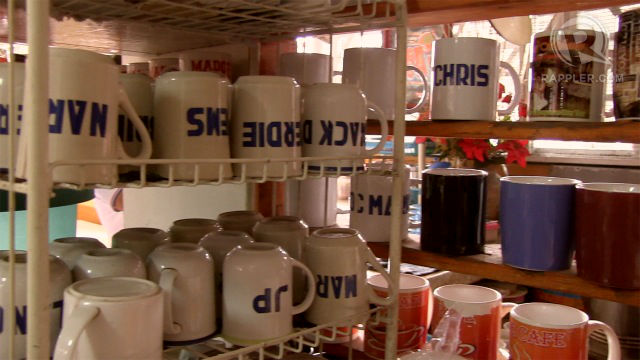
It’s the personal touch that keeps customers loyal. It could also be that timeless appeal of a good chat with strangers turned friends.
In this sanctuary, everyone has a cup and a story to share. – Rappler.com
Add a comment
How does this make you feel?
There are no comments yet. Add your comment to start the conversation.